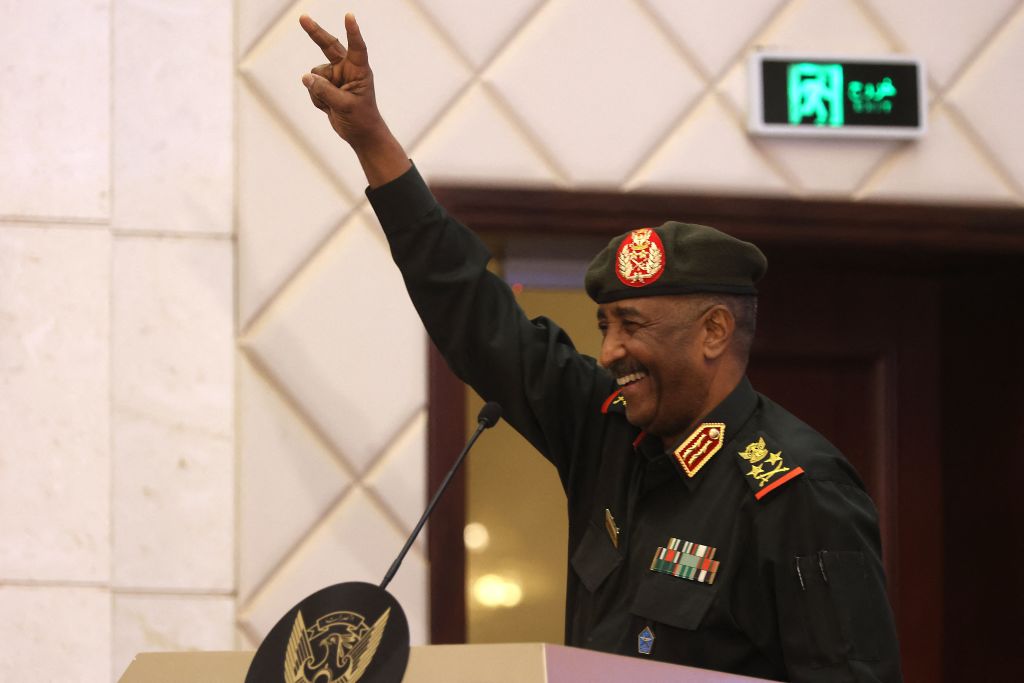Sudanese Groups Sign Deal for Return to Democracy; Critics Warn of Problems
ADF STAFF
Protesters say Sudan’s new agreement, intended to reset its transition to civilian rule, does little to constrain the military’s power.
The country’s military junta signed the agreement in early December with a group of political and business groups in Khartoum. It calls for appointing a new prime minister, removing the military from politics and from large parts of the economy, and starting a new two-year transition to civilian rule.
“The goals of the agreement are establishing a fully civilian authority, creating a free climate for politics, and reaching a final agreement with the widest political participation,” Al-Wathiq al-Barir, a spokesman for the Forces of Freedom and Change (FFC), one of the parties that signed the deal, told the BBC in December.
Alaaeldin Awad Mohamed Nogoud, spokesman for the Sudanese Professionals Association, which signed the agreement, told Al-Jazeera that the deal is the best path toward a return to civilian rule more than a year after the junta led by Gen. Abdel Fattah al-Burhan took power.
However, protesters criticized the transition’s length and the lack of accountability for coup leaders.
“The biggest problem is that the leaders of the coup — Burhan, his deputy Hemedti — stay in power. People have been killed, injured, detained [for protesting] and they are going ahead without accountability,” Sudanese filmmaker Hajooj Kuka told the BBC.
The coup threw Sudan into political and economic turmoil, leading to almost weekly protests during which security forces have killed more than 120 protesters.
The coup also ended billions of dollars in international aid and access to financial markets. Junta leaders sought to mitigate that loss by tripling taxes, raising fees for government services such as passports, and jacking up the cost of fuel.
Core inflation in the country went from 160% before the coup to more than 440% one year later.
The deal is proof that the military coup failed, Nogoud said.
“The military is no longer able to run the country,” he added.
The December agreement creates a framework. The details on when and how the transition will happen still must be negotiated. Those negotiations were scheduled to start on January 9.
In a national address on January 1, al-Burhan said he remained committed to broadening the political consensus as the negotiations move forward, according to Radio Dabanga.
The deal still lacks many details and doesn’t address many problems outside of the capital city, according to Alan Boswell, Horn of Africa Project director at the International Crisis Group, told Al Jazeera.
“This agreement is not plug and play, there is still more work to be done,” he said.
Although the agreement lacks many crucial details, one thing about it is clear, according to Kholood Khair, founder of Sudan’s Confluence Advisory think tank: The agreement puts the burden of digging Sudan out of its current quagmire squarely on the shoulders of future civilian leaders.
“The generals have the most to gain out of this deal,” Khair told Al-Jazeera. “There’s very little pressure in this deal for the generals to concede any power or any assets.”
Sudan’s military is deeply involved in the country’s economy, from farm fields to oil fields to defense contracting. Although the framework calls for removing the military’s influence in non-military parts of the economy, the mechanics of that withdrawal remain vague.
Meanwhile, the military continues to receive the lion’s share of Sudan’s national budget: 28%, compared to 3% for health and education combined.
With a number of groups — both pro-junta and pro-democracy — excluded from the negotiations that created the December framework, it remains unclear whether the agreement can be implemented, Boswell said.
“The people signing this agreement are not very representative of groups outside the capital and conflict zones,” Boswell told Al-Jazeera.
Critics worry that excluding the militant groups that signed the October 2020 Juba Peace Agreement could reignite the fighting those accords ended.


Comments are closed.